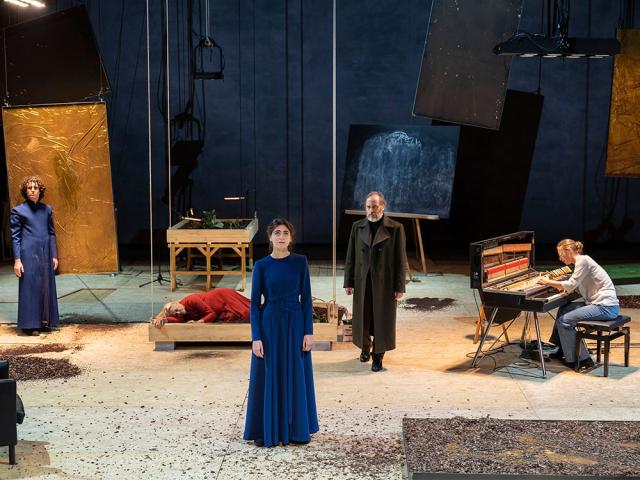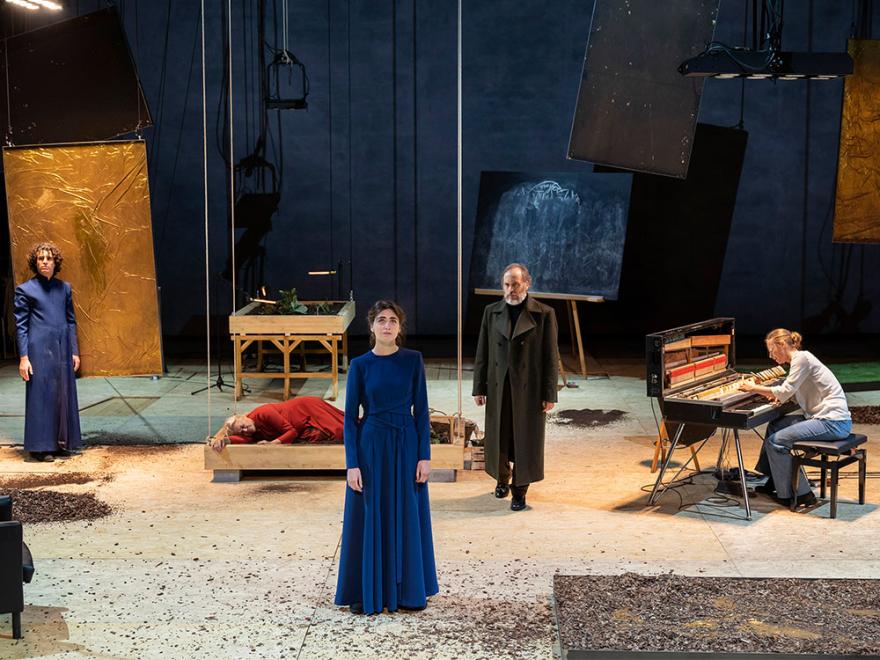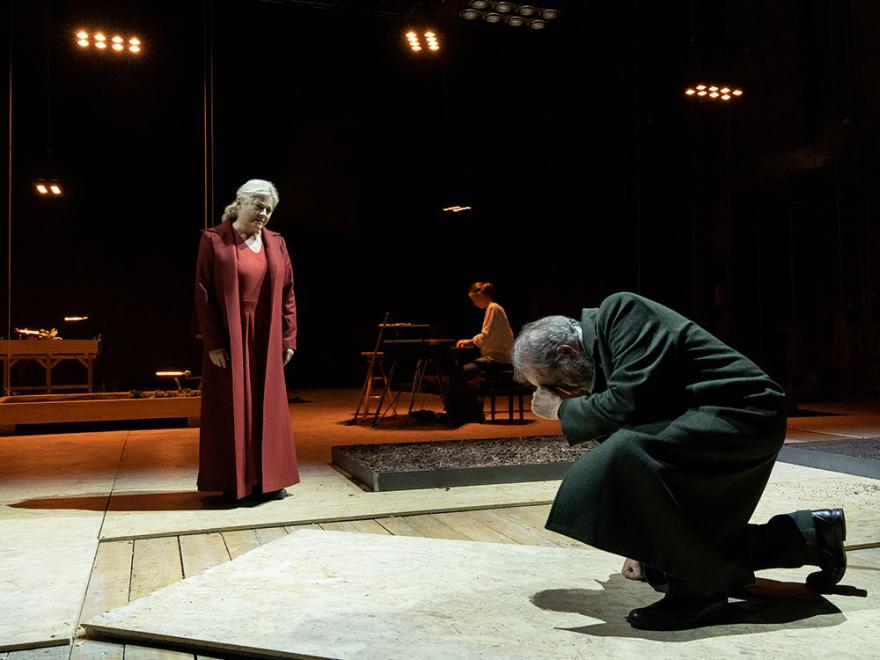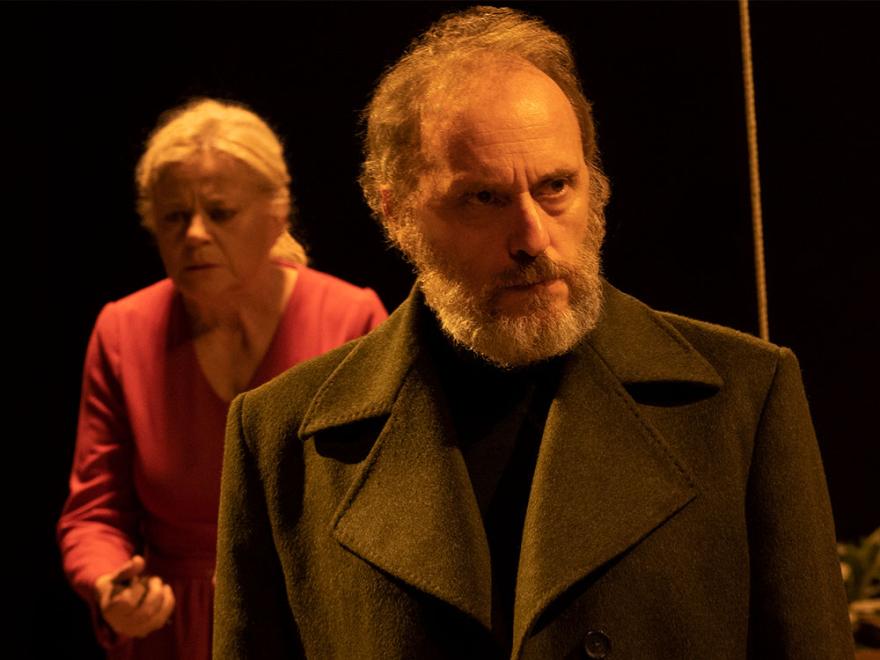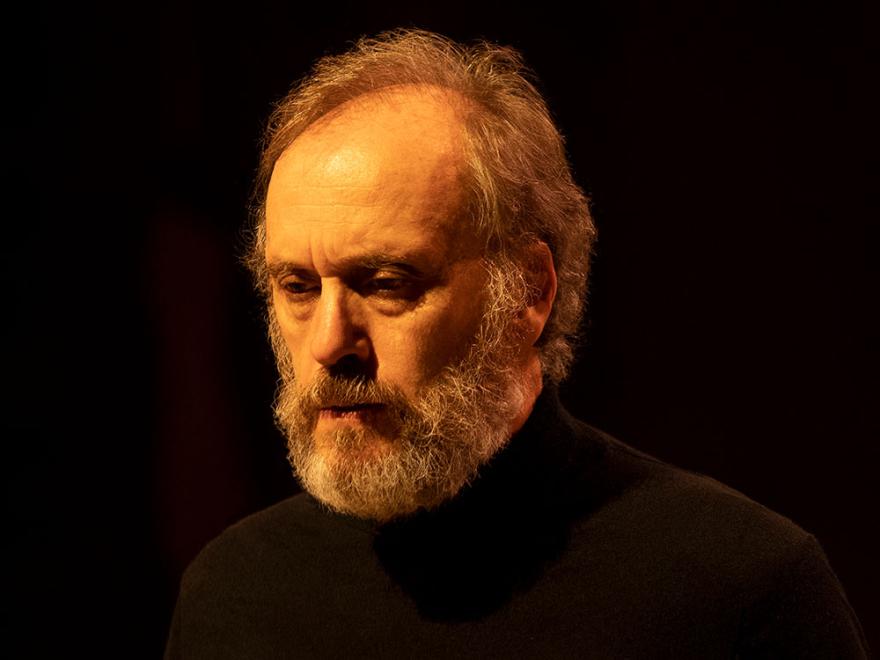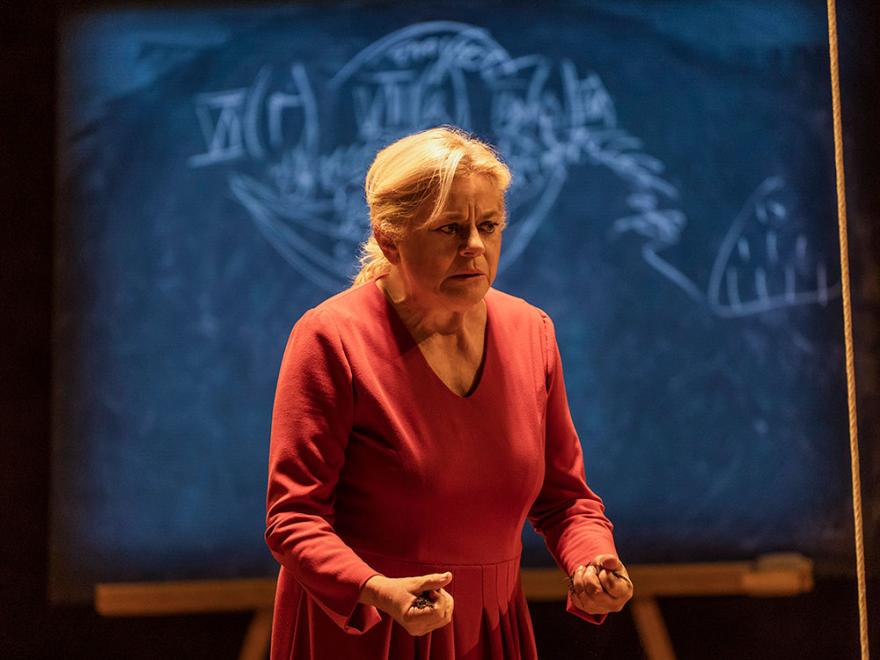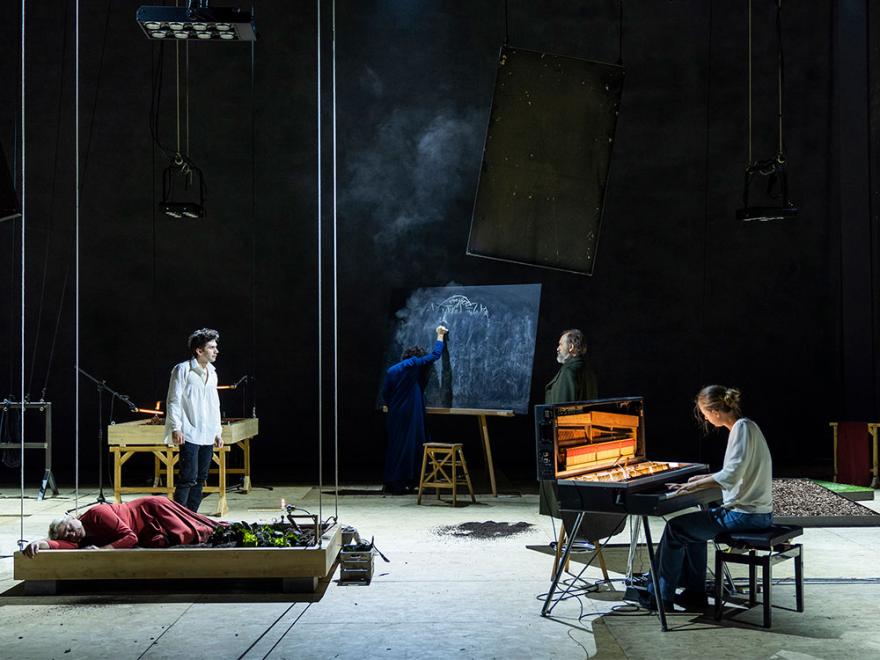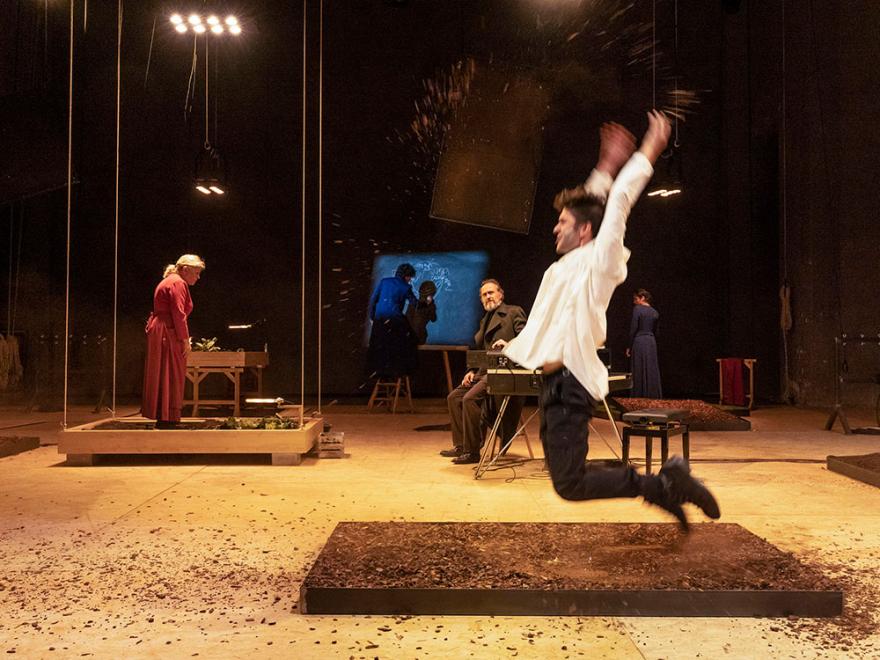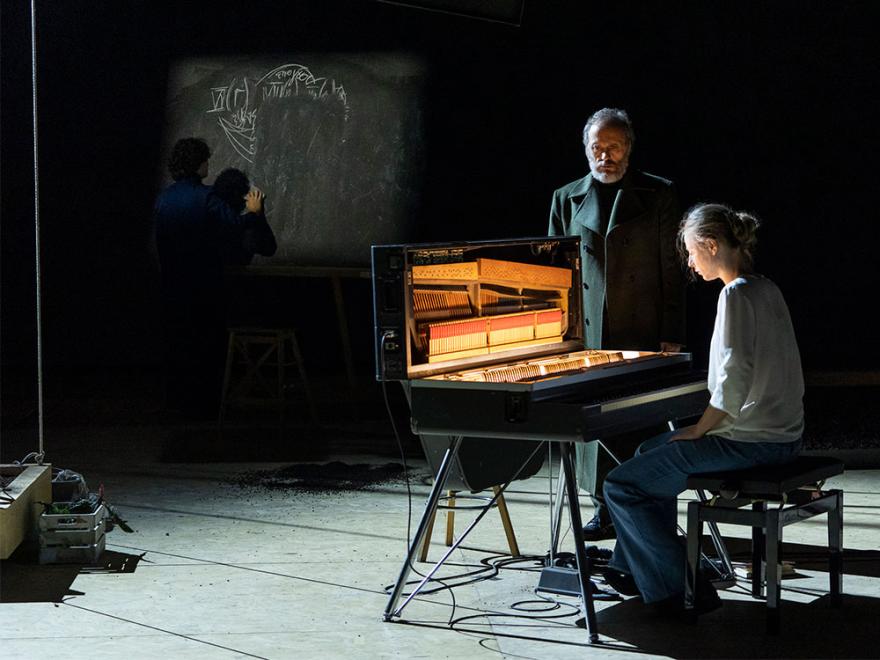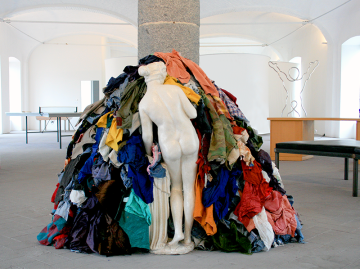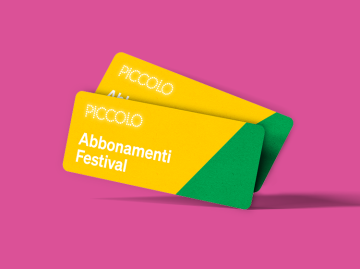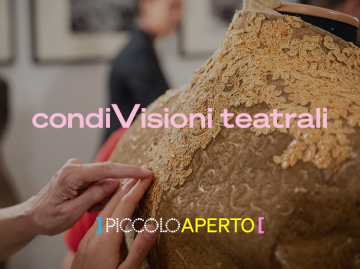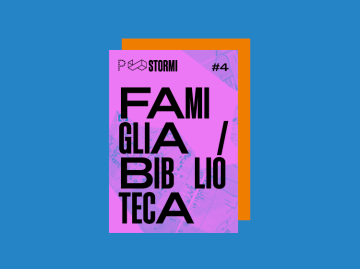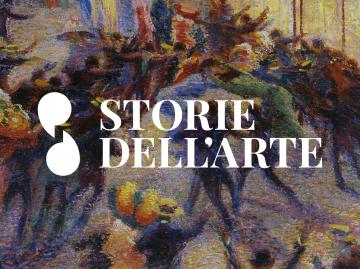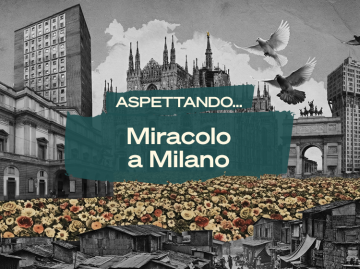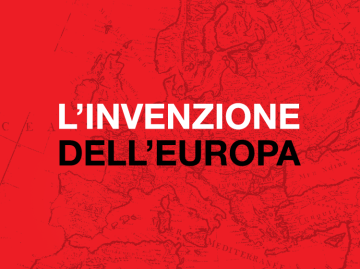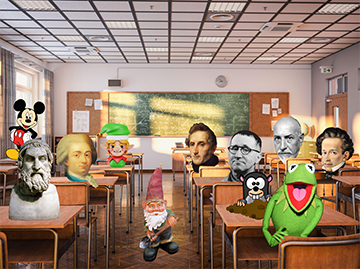Three stories, three different moments brought together in a single play. One present, where – taking her cue from the figure of Galileo – a woman examines the drama and visions of contemporary science; a moment from history, that of the abjuration; and a future moment where, revisiting the structure of Dialogue Concerning the Two Chief World Systems, a dystopic symposium takes place concerning a form of technology that has risen to become a new form of divinity.
The life and works of Galileo Galilei represent a watershed for our culture, a key to understanding Western modernity. Galileo definitively overturned the Aristotelian geocentric view of space, breaking with a model of the Earth that for centuries had served as comfort for mankind. Science and theology, and representation and truth, were definitively divided.
In the text by Angela Demattè, a woman from contemporary times is called by a scientific magazine to explain the new paradigm – the change in perception of reality – that science is examining. However, the period of mourning that the woman is going through forces her to examine a wider-ranging matter, which puts into question her view of the world.
Galileo also marked the beginning of a historical period; beginning with the scientist – and his telescope –, the advances in technical equipment coincided with the overall idea of progress; since then, scientific potential is identified with the potential of its instruments, which we are now seeing with the contemporary dream of artificial intelligence and universal automation. On the basis of this hypothesis, Fabrizio Sinisi has developed a parable in verse on the theme of a generation that has irremediably bound its destiny to technological progress.
The two works are united through the words of Galileo’s trial in 1633, with its characters and language. Three sequences that correspond to three processes that – with differing language and methods of expression – examine the destinies and questions raised by the contemporary world and what we now call modernity.
Duration: 95’ without interval
Learn more
Booklet
ReadThe life and works of Galileo Galilei represent a watershed for our culture, a key to understanding Western modernity. Galileo definitively overturned the Aristotelian geocentric view of space, breaking with a model of the Earth that for centuries had served as comfort for mankind. Science and theology, and representation and truth, were definitively divided.
In the text by Angela Demattè, a woman from contemporary times is called by a scientific magazine to explain the new paradigm – the change in perception of reality – that science is examining. However, the period of mourning that the woman is going through forces her to examine a wider-ranging matter, which puts into question her view of the world.
Galileo also marked the beginning of a historical period; beginning with the scientist – and his telescope –, the advances in technical equipment coincided with the overall idea of progress; since then, scientific potential is identified with the potential of its instruments, which we are now seeing with the contemporary dream of artificial intelligence and universal automation. On the basis of this hypothesis, Fabrizio Sinisi has developed a parable in verse on the theme of a generation that has irremediably bound its destiny to technological progress.
The two works are united through the words of Galileo’s trial in 1633, with its characters and language. Three sequences that correspond to three processes that – with differing language and methods of expression – examine the destinies and questions raised by the contemporary world and what we now call modernity.
Duration: 95’ without interval
Learn more
Booklet
ReadCredits
directors' assistants Ugo Fiore, Marcello Manzella
Tickets
Category of performance Hosted Shows
Stalls full price € 33 | Discounted (under 26 and over 65) € 21
Balcony full price € 26 | Discounted (Under 26 and over 65) € 18
Subscriptions
The performance is available for subscription holders
To purchase a subscription online, click here
How and where to purchase
For information, click here
COVID-19
Read the guidelines
Organised groups and audiences
For information on tickets for organised groups:
tel. +39 02 72 333 216
email promozione.pubblico@piccoloteatromilano.it
